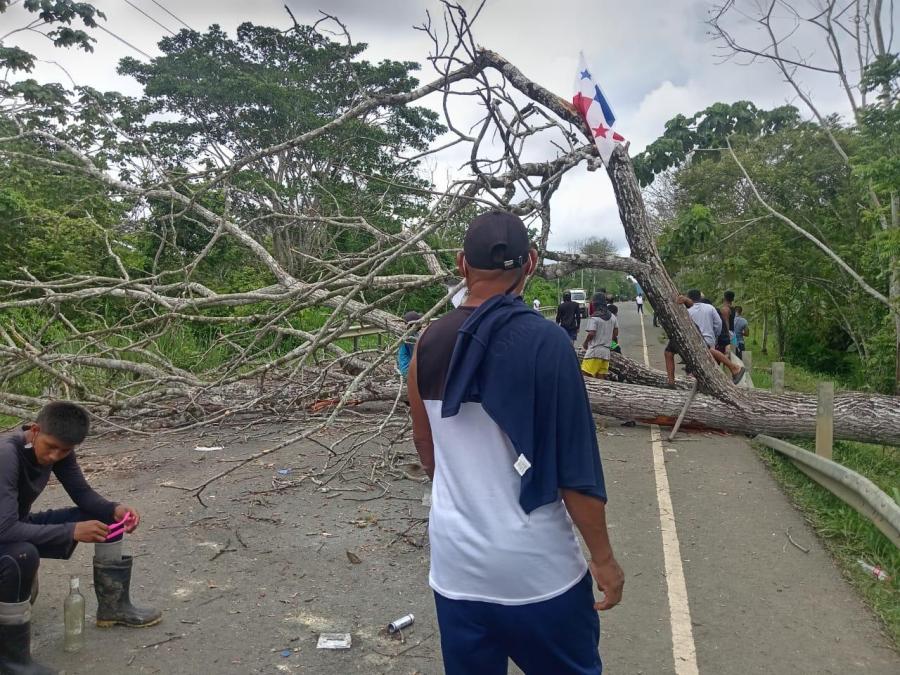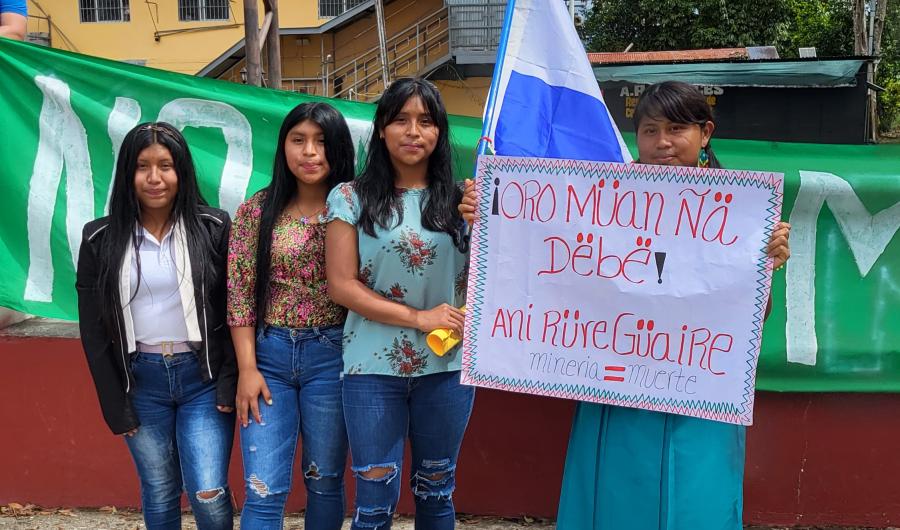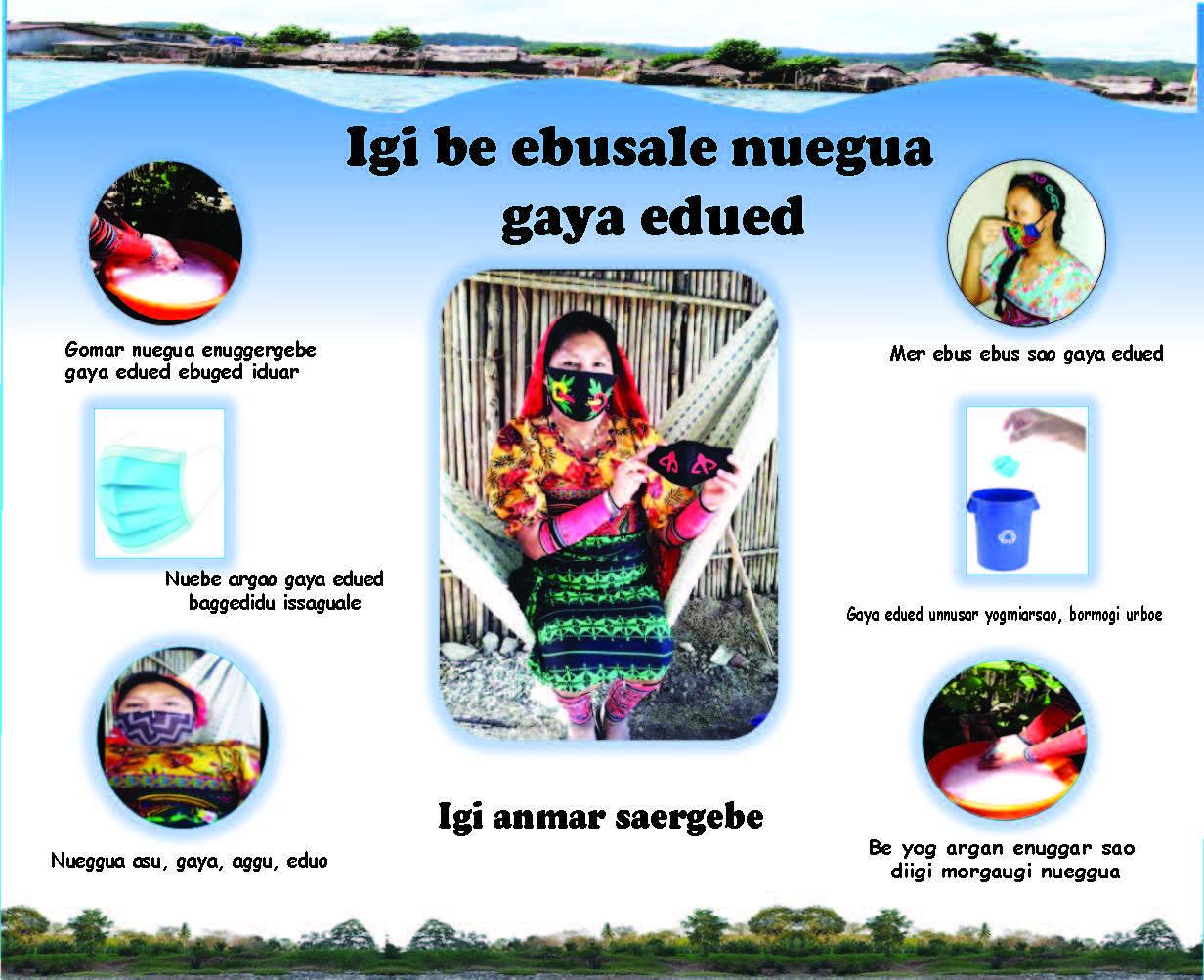
By Milagro Ventura
COVID-19 hit Indigenous Peoples too fast to anticipate. Yet, many have come together to ensure that Indigenous communities around the world are well-informed and have access to the resources needed to protect themselves from the pandemic. This response is especially necessary because Indigenous communities who are among the most vulnerable have become the last priority in the COVID-19 response by national governments.
With most Indigenous areas being underfunded in medical resources, many communities had no other option but to invoke their autonomy and close access to their communities to mitigate the spread of the coronavirus. Closing off communities also means entering into a further state of isolation as ways to access medical care and resources become more restrictive. This is especially true for the Indigenous Panamanian communities of the Guna and of Ipeti Embera. Forty percent of these populations migrate for employment either permanently or temporarily, and those who get infected with the virus have found themselves without jobs and sometimes housing if they are not able to travel back to their communities.
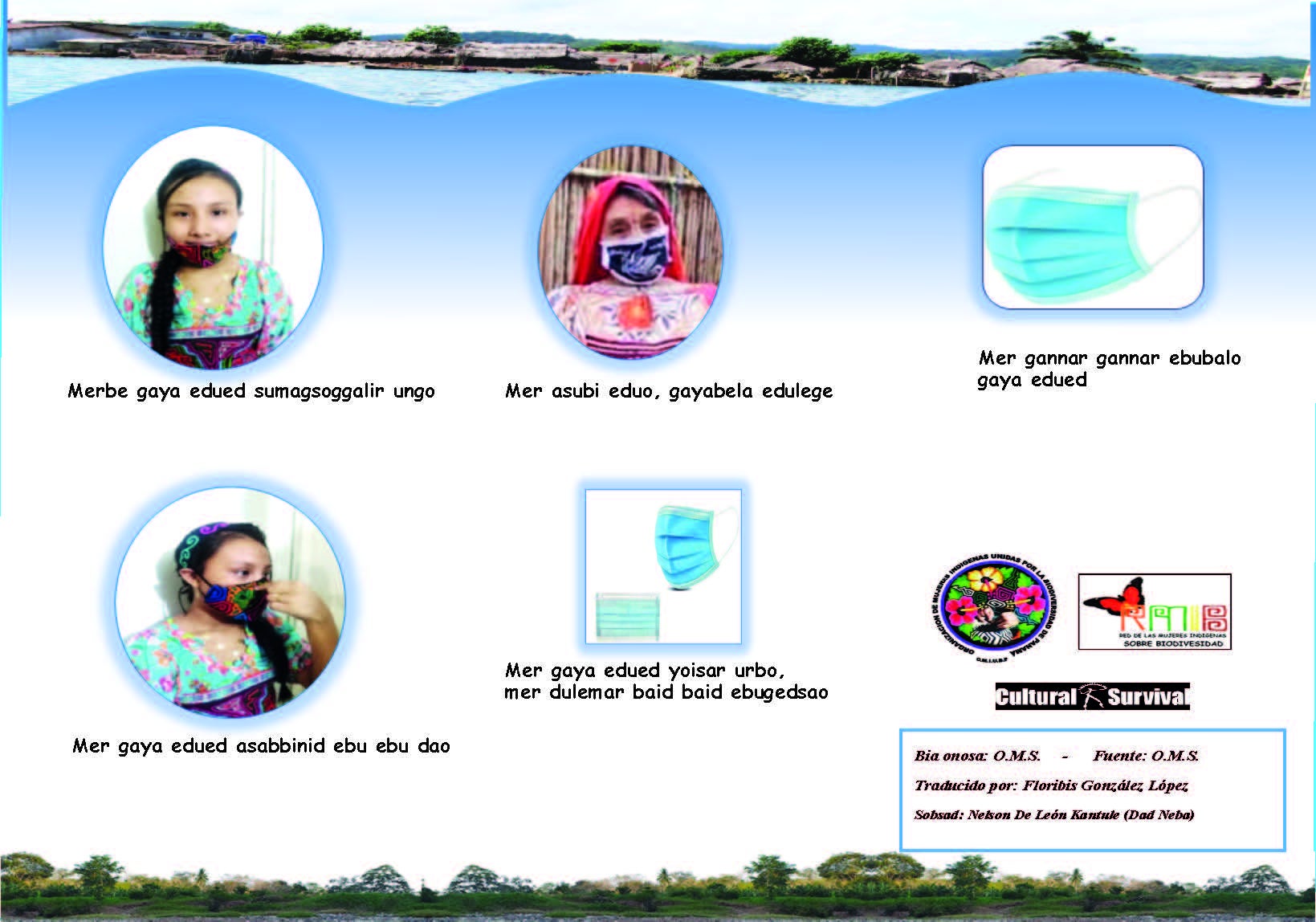
With so many obstacles to mobility and economic prosperities, intra-community work is not only important but also essential. In a time when organizing is not only important but also risky, Organización de Mujeres Indígenas Unidas por la Biodiversidad de Panamá (OMIUBP) rose to meet the needs and challenges in their communities. OMIUBP are experts in the revival and development of Indigenous knowledge in Panama and represent all 7 Indigenous Peoples nationwide. They work to fortify, develop, and retain Indigenous knowledge with a primary focus on Indigenous women’s role in defending human and biodiversity rights of their communities. “As a result of this health crisis, we realized that it was necessary to join forces to continue supporting the communities,” says Deidamia López, president of OMIUBP.
As COVID-19 became rampant, OMIUBP started a communication campaign to help mitigate the spread of the virus. With the help of a grant from Cultural Survival’s Keepers of the Earth Fund, OMIUBP created multimedia outreach programs for the Guna, Embera, and Wounaan. Using flyers, radio, and tv programming, social media posts, informative forums with community leaders, webinars, in both Guna and Emberá languages, and the creation of a COVID-19 committee, OMIUBP built solidarity and shared prevention information. Their local media campaigns were created through a combination of health recommendations from Panama’s Health Ministry and traditional medicine.
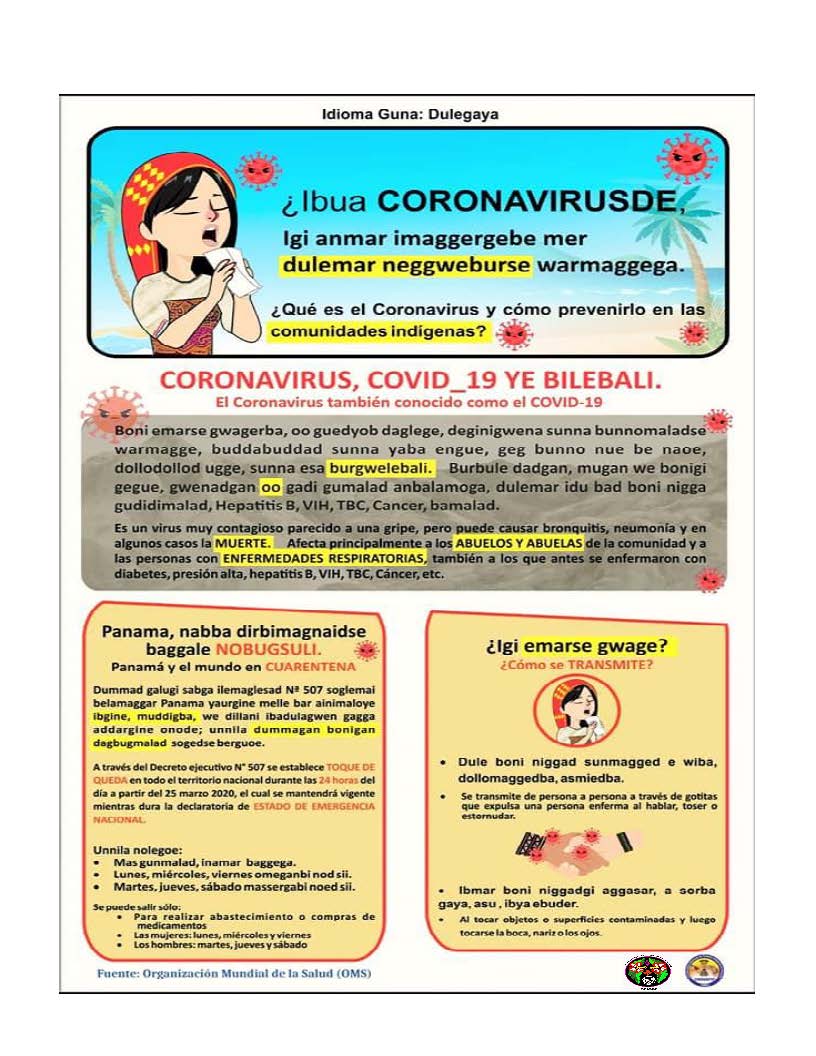
“Thanks to this project I learned about COVID-19 in a scientific and cultural way,” stated one OMUBP member. Another member said, “We have to follow sanitary norms, but also cultural norms.”
According to OMIUBP, 80 percent of their target population stated that they received COVID-19 prevention information from flyers and audio and video programming that OMIUBP created. Their COVID-19 committee is made up of international and national Indigenous and non-Indigenous professionals, academics, and organizations, NGOs, and institutions that wanted to work together to find strategies to help ensure the resilience and health of Indigenous communities around the world in the midst of the COVID-19 pandemic. The local part of this committee started a monitoring initiative where committee members follow up with those showing symptoms of COVID-19 for contact tracing purposes, for need-based inquiries, and for communal support. OMIUBP’s capacity-building activities were able to effectively communicate hygiene, sanitation, and mask usage guidelines to a population that would have otherwise not have had effective access to this information in their native languages.
